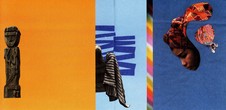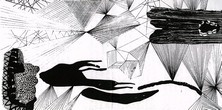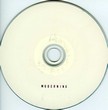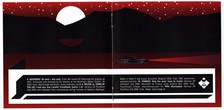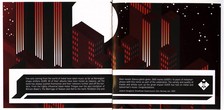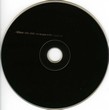|
|
|
It's a label showdown! Welcome to round 25 in the label showdown series between Metronomicon Audio and Jester Records!
Since we've more or less totally missed out on reviewing the output of these two great labels, we are going
through their entire catalogues, matching the releases from each label consecutively against each other.
Humorously counting goals Match preview The Ulver release comes in a jewel case and includes a booklet with art. The match In this period of time, Hanny seemed to be a loosely defined band revolving around Marie Therese B. Kvamme (vocals, guitars, synths, etc.), and also including Tonje Elisabeth Hove (cello), Karin Kristoffersen (horns) and Brynjulf Grøttheim Krokstrand (bass) seemingly as members, and with an array of other hands and heads helping out. Nice to see some new names added to the Metronomicon rooster! "Tableau" is a nice melancholy folk song that shifts between mellow acoustics and light glimmering carpets of fuzzy guitars.
"Where We Leave" and "How Great Thou Art" are calmer pop songs, with perhaps both the singing and the acoustic arrangments
being a little too much on the nice side, arriving and leaving without much trace To sum it up: In spite of the nice and fragile voice of Marie Therese B. Kvamme and some nice little acoustic pop/folk songs, Hanny's debut album suffers from the rather variable quality of the musical performances. The songs themselves show some potential, although I find them too much on the nice and comfy side. In this setting, the Tibetan folk tune sung by a guest vocalist, and not at all representative for the album becomes the album's highlight, somewhat disappointingly. The title of 1993-2003: 1st Decade In The Machines gives the impression that the album is a compilation of Ulver tracks from this period,
but instead it consists of Ulver songs reinterpreted by other artists within and outside the Jester rooster. All except
from the opening "Crack Bug", which is off a 1993 Vargnatt demo, seen through Ulver's current experimental and electronic looking glass (I guess), very industrial.
Alexander Rishaug's version of "A Little Wiser Than The Monkey, Much Wiser Than Seven Men" (from the monumental 1998 release Themes From William Blake's The Marriage Of Heaven And Hell) is noisier,
leaning on the upper frequencies, frying your mind
Another track from Themes From William Blake's The Marriage Of Heaven And Hell is given a rather strange treatment by
Bogdan Raczynski. His "Bog's Basil & Curry Powder Potatos Recipe" is a rather blip-bloppy dish with cheesy synths and
rushing electronics, not something I would order again.
Martin Horntveth (Jaga Jazzist) does "Der Alte", using material from 2001's slightly disappointing Silencing the Singing release,
adding a German monologue that kind of takes over the show
Christian Fennesz's "Only The Poor Have To Travel" quickly breaks up this meditative mood,
also using material from Perdition City, but staying closer to the album's darker setting,
and the same goes for Pita's "Ulvrmxsw5", although this is more white noisy and loopy, preparing
the ground for the remaining noisy part of the album.
Jazzkammer (Lasse Marhaug and John Hegre) goes all the way back to
the 1994 album Bergtatt for their "Wolf Rotorvator". Although starting with black space,
this soon turns into a three-minute harsh full-on noise cut-up experience, making it a challenge to
trace the sounds back to Bergtatt.
This glides almost unnoticably into another track from the noise department,
V/Vm's "The Descent Of Men", destructing material from Nattens Madrigal in the same vein.
Both lead up to the album's noise finale, with a 10 minute Merzbow treatment of material from
both Bergtatt and Nattens Madrigal. After about 4 minutes of ear-cleansing noise,
we're moved into a more ambient jungle of sounds, after a while adding melodic elements, but
the deep rumble soon shifts into noise territory again, ending in pitch-shifting samples reeling
to a halt. As with most noise music, at least the harsher kind, the concept itself (or perhaps the
live experience) is more appealing than actually listening to it on record. Fanse of the genre
may disagree, but the three ending noise contributions are mostly for their ears only To sum it up: If you like experimental electronica, this remix album of Ulver songs/material may be of interest to you, whether you know the original material or not. Most of the remixes/remakes are far from blueprints, and in this regard all worthy inclusions on this Ulver tribute album, but few touch Ulver's level of emotional depth. Match result: Metronomicon Audio 1 (
Next match Copyright © 2011 Knut Tore Breivik
|
| © 2011 FuzzLogic |
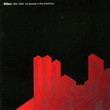
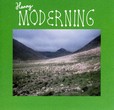 Hanny: Moderning
Hanny: Moderning